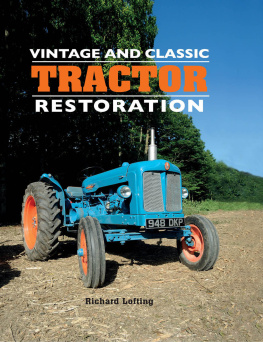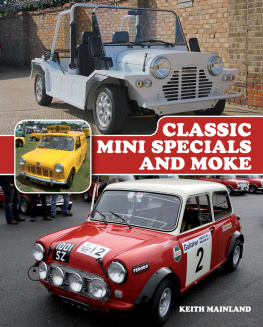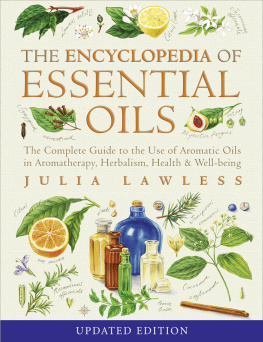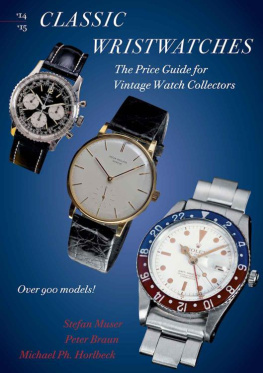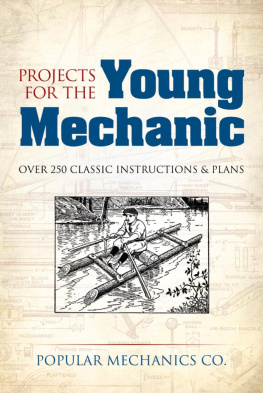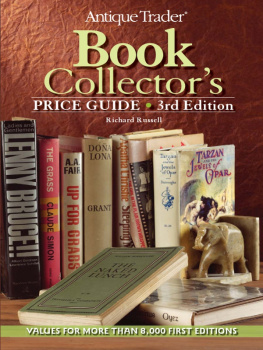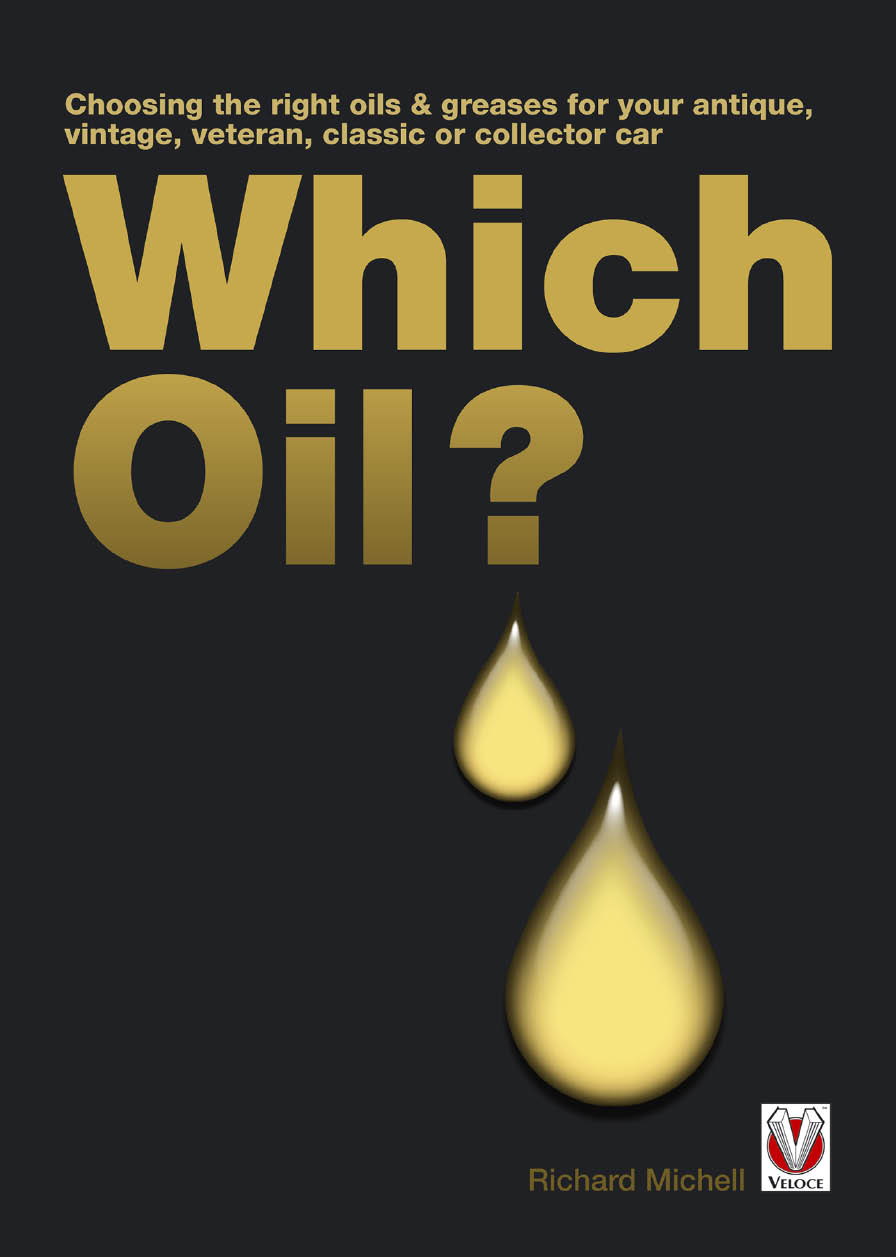Choosing the right oils & greases for your veteran, brass era, vintage, antique, classic or collector car
Which Oil?
Richard Michell
First printed in paperback format in August 2011.
First published in ebook format May 2013 by Veloce Publishing Limited, Veloce House, Parkway Farm Business Park, Middle Farm Way, Poundbury, Dorchester, Dorset, DT1 3AR, England Fax 01305 250479 e-mail .
Ebook edition ISBN: 978-1-845846-27-5
Paperback edition ISBN: 9781845843656
Richard Michell and Veloce Publishing 2013. All rights reserved. With the exception of quoting brief passages for the purpose of review, no part of this publication may be recorded, reproduced or transmitted by any means, including photocopying, without the written permission of Veloce Publishing Ltd. Throughout this book logos, model names and designations, etc, have been used for the purposes of identification, illustration and decoration. Such names are the property of the trademark holder as this is not an official publication.
Readers with ideas for automotive books, or books on other transport or related hobby subjects, are invited to write to the editorial director of Veloce Publishing at the above address.
All Ebook design and programming by Veloce Publishing Ltd on Apple Mac.
Veloce Publishing
www.veloce.co.uk
digital.veloce.co.uk
Contents
1. Introduction & Acknowledgements
Introduction
Proper lubrication is essential to the reliable operation and longevity of all vehicles modern and classic but what is proper lubrication? Unfortunately, while a small core of sound information is readily available, it is overlaid with and often swamped by a combination of mystery, myth, hype and hearsay.
For modern cars, manufacturers will give some guidance, although, if they sell so-called genuine oils under their own brand, even they may not be very forthcoming. For an older car, even if the information that was published when the vehicle was new is available, the products that were specified or referred to most probably are not. The challenge for owners and drivers of such vehicles is to choose products from the modern lubricant range that will satisfy their vehicles lubrication needs.
Proof that this challenge is real and of genuine concern to owners is shown very readily by even the most cursory search on the internet. Every car club site has a portion of its technical help site dominated by questions, comments and arguments over appropriate lubricants. Outside of these formal sites, there are dozens of other forums and discussions on this same topic.
The object of this book is to help you to successfully master this challenge. The approach taken is not to attempt to list every vehicle ever made and to give current lubricant recommendations. The list would be impossibly long and the recommendations would soon become out of date, as the modern lubricants evolved.
Rather, the book attempts to first give you essential underlying information and an understanding of the lubrication of the various mechanical components of motorcars, whatever their vintage. It then gives a suggested approach for you to follow including some examples of its application in order to select suitable modern lubricants. Hopefully, as a result you will be able to make sensible and safe selections for your vehicle from the lubricants that are available to you, allowing you to get on with the much more important business of enjoying the driving of your car.
The above describes the logical layout of the book. To get the most benefit from it you should read it in the order in which it is laid out. However, I recognise that the chapters that deal with the underlying lubrication concepts and needs are potentially heavy going and not necessarily highly exciting. I also suspect that, like me, you dont have infinite patience or time. Hence, many readers will no doubt turn straight to the last couple of chapters, the ones that explain how to make a lubricant choice and that deal with some of the common questions and points of contention. I confess that I probably would too.
If this is what you do, I would still encourage you to also read and digest at least part of the background information in earlier chapters. If you dont, then you may struggle with some of the terminology and concepts used. Also, the better your understanding is of the underlying principles, the better and safer will be your choice of lubricants and the less vulnerable you will be to the folklore and myths that abound.
Perhaps a good compromise, if you do start with the last chapters, is to consult the index or glossary of terms each time you strike a term or concept that you dont fully understand. Via the Index, go and read the relevant explanation. By doing this at the time that it is most relevant to your understanding, youll be able to digest the background information in smaller, more manageable portions.
Irrespective of how you decide to approach the book, I trust that you will ultimately get practical benefit from it, along with new and interesting facts and some pleasure. To ease you in, and put you in the mood, in the next chapter I give a very potted outline of the development of the motor car over the course of the twentieth century, with particular emphasis on the evolution of its lubrication.
Acknowledgements
I am pleased and grateful to acknowledge the help of three particular people David Blackwell, Alastair Browne, and Geoff Harrison. Each of them read the manuscript in its entirety, gave me invaluable advice, and, importantly, three different reading perspectives. The book is greatly enhanced through their efforts. However, even with their dedication, there will no doubt still be some errors. They are entirely my own responsibility.
2. Historical eras
There is an obvious difficulty in dividing cars into historical eras. At any given time, the vehicles being sold were not all of the same degree of technological development. So, while generalisations can be made, there will always be exceptions. You should always cross-check the information given in this chapter for the relevant period with what the manufacturer of your vehicle specified for its lubrication.
2.1 Prior to 1915
Prior to 1915, formulation of oils to lubricate engines was very much an art, rather than a science. There was limited knowledge and understanding, and so there was the opportunity for talented individuals and companies to make technological breakthroughs or advances. In this circumstance, what was critically important was the choice of the brand of lubricant. There was no such concept as a performance specification.
However, at the time that the motor car first emerged, there was already a significant knowledge of the lubrication of engines arising from their industrial use. Originally these industrial engines were steam driven, but internal combustion engines often running on town or producer gas for their fuel had become much more widespread by the start of the 1900s. However, these engines were, in general, large and slow revving when compared with those developed for transport and, obviously, they were stationary.
In this early period, the process of refining hydrocarbon or mineral oil (crude oil) was still very much in its embryonic state. Mineral oil-based products did not dominate lubricant technology as they do today. Products based on vegetable and animal oils, or on such oils mixed with mineral oil (known as compounded oils), were also widely used. The US tended to adopt mineral oil-based lubricants earlier than Europe. This was in part because of the large oil discoveries in the US, and in part because of an accident of circumstance (see following). Perhaps the best known of the compounded or mixed oils was Castrol R, a product based originally on castor oil (hence the Castrol name).




